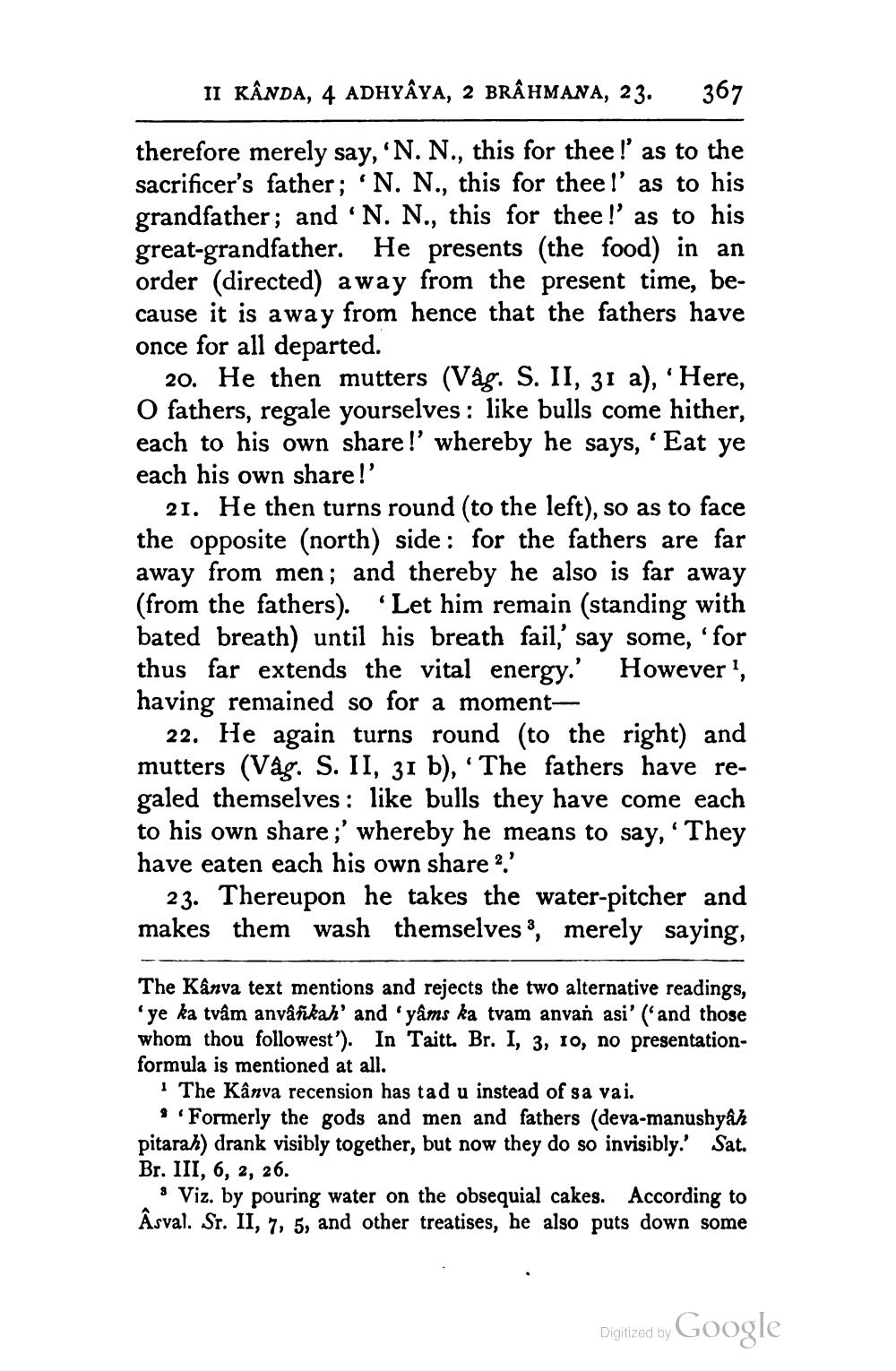________________
II KANDA, 4 ADHYAYA, 2 BRAHMANA, 23. 367
therefore merely say, 'N. N., this for thee!' as to the sacrificer's father; 'N. N., this for thee!' as to his grandfather; and 'N. N., this for thee!' as to his great-grandfather. He presents (the food) in an order (directed) away from the present time, because it is away from hence that the fathers have once for all departed.
20. He then mutters (Vâg. S. II, 31 a), 'Here, O fathers, regale yourselves: like bulls come hither, each to his own share!' whereby he says, 'Eat ye each his own share!'
21. He then turns round (to the left), so as to face the opposite (north) side: for the fathers are far away from men; and thereby he also is far away (from the fathers). 'Let him remain (standing with bated breath) until his breath fail,' say some, 'for thus far extends the vital energy.' However 1, having remained so for a moment—
22. He again turns round (to the right) and mutters (Vag. S. II, 31 b), 'The fathers have regaled themselves: like bulls they have come each to his own share;' whereby he means to say, 'They have eaten each his own share 2.'
23. Thereupon he takes the water-pitcher and makes them wash themselves, merely saying,
The Kanva text mentions and rejects the two alternative readings, 'ye ka tvâm anvâñkah' and 'yâms ka tvam anvan asi' ('and those whom thou followest'). In Taitt. Br. I, 3, 10, no presentationformula is mentioned at all.
The Kânva recension has tad u instead of sa vai.
Formerly the gods and men and fathers (deva-manushyâh pitara) drank visibly together, but now they do so invisibly.' Sat. Br. III, 6, 2, 26.
3 Viz. by pouring water on the obsequial cakes. According to Asval. Sr. II, 7, 5, and other treatises, he also puts down some
Digitized by
Google




